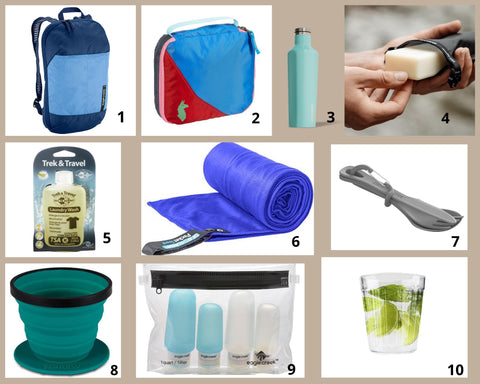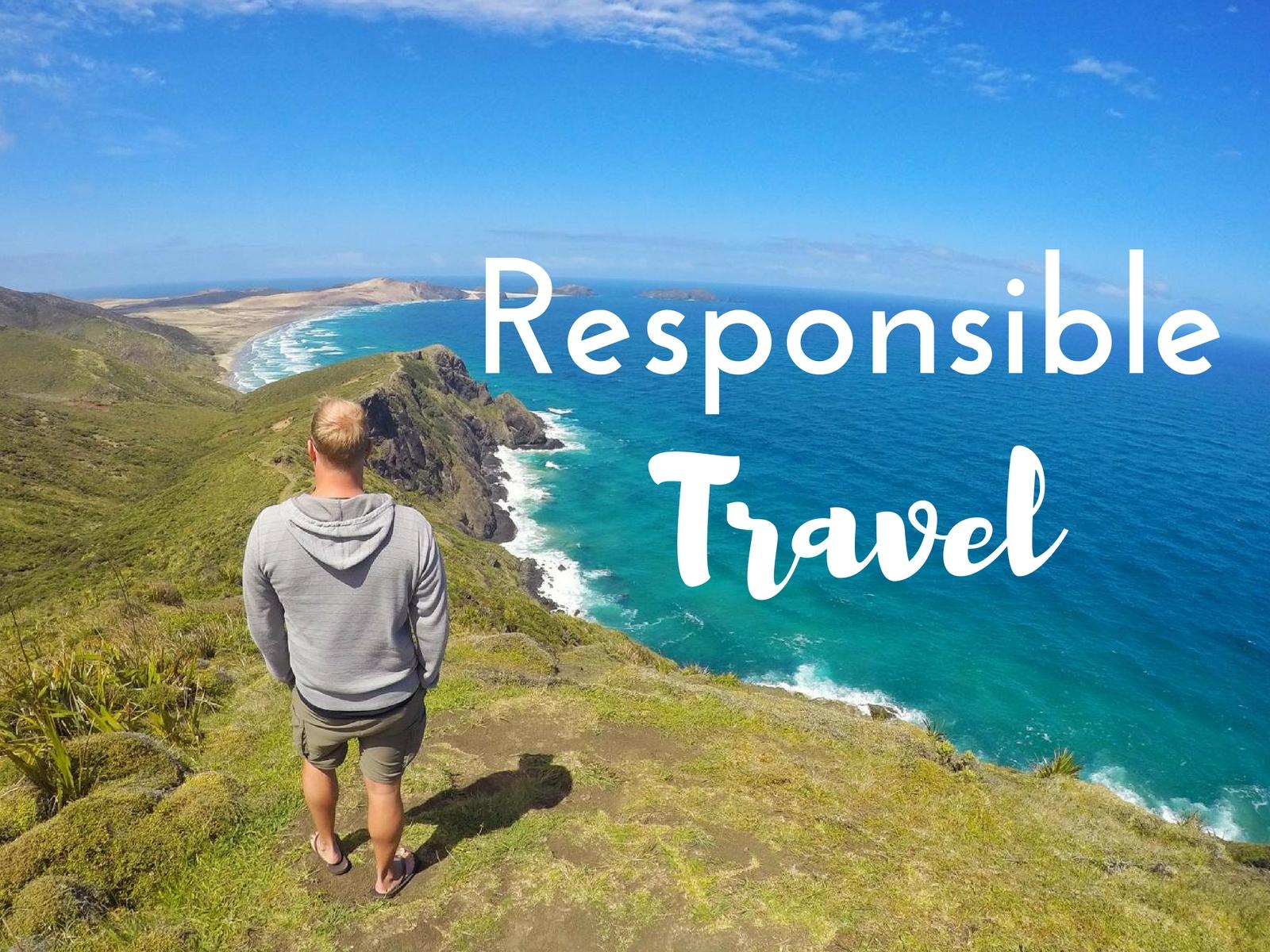
The United Nations World Tourism Organization (UNWTO) has created guidelines to increase awareness among governments, businesses, and tourists of their impact on the environment, cultural heritage and societies across the globe. The economic significance of tourism equals or even surpasses that of oil exports, food products or automobiles and is one of the main income sources for many developing countries.
As responsible tourists, we can do our part to stay informed of the best possible travel choices we can make when planning a trip. Our actions can have significant consequences on the world while we travel.
Here’s how we can make a difference:
1. Transportation: Consider all the options

- Whether traveling as a group, a couple or alone, consider rail and motor coach travel. A couple traveling by bus cuts carbon emissions 50% compared to driving a hybrid car, and up to 75% instead of flying.
- Book non-stop flights whenever possible, or fly the most direct route. A significant percentage of a plane’s carbon emissions come from takeoff and landing.
- First-class travelers on domestic flights produce double the carbon emissions as someone flying economy. The more economy seats are removed, the fewer people on the aircraft, the higher the per-person carbon contribution.
- Rent a fuel-efficient vehicle for longer trips. Many car rental agencies now offer hybrids.
- Join a walking tour or rent a bike on your visit.
2. Buy Local

- Buy locally made handicrafts and souvenirs instead of products flown or shipped from overseas.
- Pay the fair price to respect the livelihoods of artisans and vendors.
- Hire local guides with knowledge of the area that support the local economy.
3. Eat Local
- Locally grown and processed foods are a good way to lower your carbon footprint.
- Avoid buying foreign brands of food or drink.
- Shop at farmers’ markets and dine at restaurants with locally sourced ingredients.
4. Save Water And Energy

- Reuse hotel towels and bedsheets.
- Turn off the air conditioning, TV and lights whenever you leave the room.
- Reduce the use of amenities such as shampoo and soap.
- Use reusable toiletry bottles.
- Pack a water bottle and refill from large jugs of water from a local grocery store. Ask your hotel to recycle the empty jugs.
- Use reusable toiletry bottles. 'Silicone GoToobs' are food-safe, BPA-free and TSA approved
- Carry reusable shopping bags to minimize plastic waste.
5. Help Preserve Natural Environments

- Protect wildlife and their natural habitats. Stay on marked trails and collect your garbage.
- Do not purchase products made from endangered plants or animals.
- Use reputable organizations that house and protect their animals when booking wildlife activities like riding elephants or taking photos with tigers.
6. Choose Eco-Friendly Travel Options
 Photo courtesy of Club Med Solar Powered Finolhu Villas, Maldives
Photo courtesy of Club Med Solar Powered Finolhu Villas, Maldives
- Stay in eco-friendly accommodations. Look for LEED-certified hotels with recycling programs and energy-efficiency ratings.
- Choose tourism operators with environmental policies and community projects in place.
7. Be A Respectful Traveler

- Always ask before taking photographs of people to respect their privacy.
- Respect and honor local customs and traditions.
- Learn a few words of the local language.
Travel Accessories For Responsible Travelers:

- Eagle Creek Pack-It Reveal Convertible Pack Org
- Cotopaxi Cubo Travel Cubes
- Corkcicle Metallic Canteen 16 oz
- Matador Flatpak Soap Bar Case
- Trek & Travel Laundry Soap
- Sea to Summit Medium Travel Pocket Towel
- Sea to Summit 3-Piece Cutlery Set
- Sea to Summit X-Brew Coffee Dripper
- Eagle Creek Silicone Bottle Set
- Sea to Summit Deltalight Tumblers







 Photo courtesy of Club Med Solar Powered Finolhu Villas, Maldives
Photo courtesy of Club Med Solar Powered Finolhu Villas, Maldives

Comments
Leave a comment